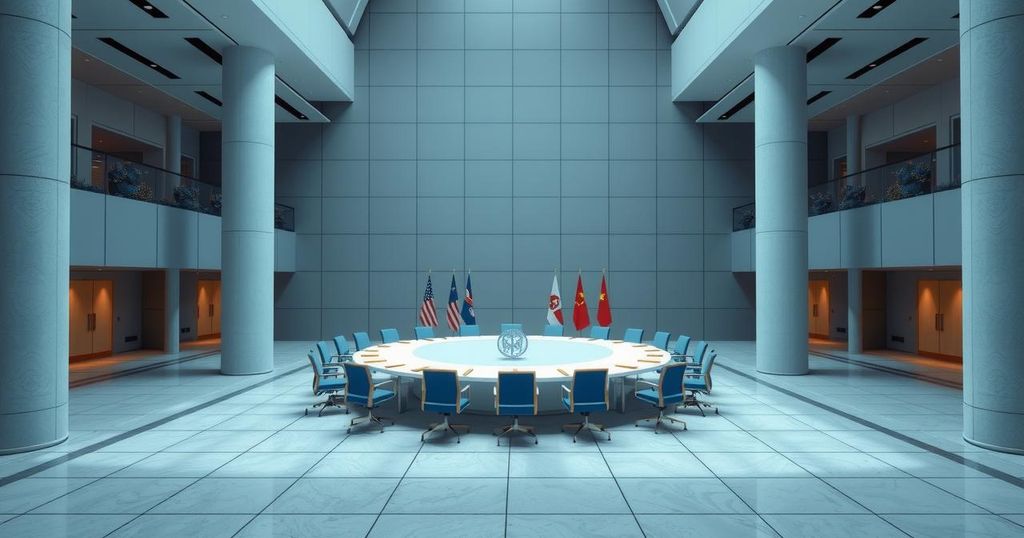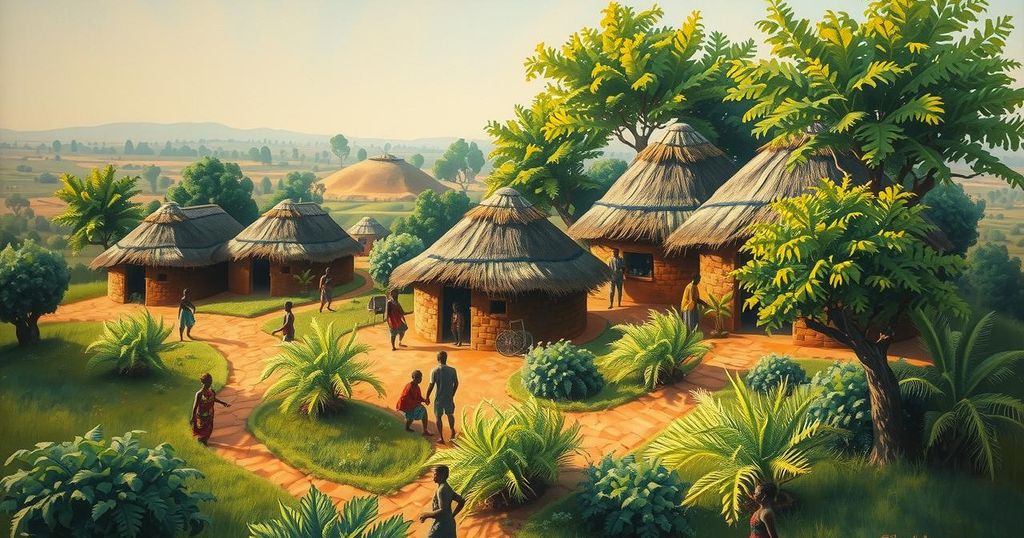The city of Bukavu in eastern Congo has experienced mass panic as residents flee the advance of Rwanda-backed M23 rebels. Following fierce conflicts, looting has ensued, and significant civilian distress has been reported. As the rebellion escalates, international calls for ceasefires have been made, yet concerns about humanitarian crises and regional stability grow amidst the ongoing violence.
GOMA, Congo — On Saturday, eastern Congo’s second-largest city, Bukavu, was enveloped in panic as thousands of residents and soldiers fled the advancing Rwanda-backed M23 rebels. Following the rebels’ entry to the city’s outskirts, scenes of chaos unfolded, with streets filled with distraught civilians evacuating and looting occurring amidst the vacated cityscape. Residents and local merchants prepared for the impending threat, bracing themselves for potential violence.
While M23 fighters did not capture Bukavu outright, calming the situation temporarily, their earlier seizure of an airport nearby heightened local fears. Gunfire subsided as Congolese troops retreated south, allowing a semblance of order to return, according to Bukavu resident Alexis Bisimwa. Some residents reported distressing scenes of burned bodies left abandoned in the streets as looters exploited the departure of Congolese forces.
Reports surfaced of rampant looting and lawlessness, with one cruel resident describing how some security personnel were complicit in the chaos. “It’s a disgrace. Some citizens have fallen victim to stray bullets. Even some soldiers still present in the city are involved en masse in these cases of looting,” a local lamented. Meanwhile, the Congo River Alliance, which includes M23, directed blame towards Congolese troops and allied militias for the turmoil in Bukavu.
Pierre Bahizi, self-declared governor of Bukavu, urged citizens to remain calm and to organize efforts to restore order to their city, insisting, “We must not leave power in the street.” M23’s rapid territorial expansion poses significant challenges to the Congolese government and risks provoking greater international scrutiny, especially as the rebellion has already caused significant casualties and displacement in the region.
A humanitarian crisis has unfolded, with nearly 3,000 deaths reported and many more displaced from their homes under dire conditions. The ongoing hostilities have attracted international attention, prompting French President Emmanuel Macron to call for an urgent ceasefire and the restoration of Congolese authority in Bukavu. The fighting escalates worries of a broader conflict within the region, raising alarms among African leaders and the international community.
During an African Union summit, U.N. Secretary-General António Guterres emphasized the urgency of preventing regional escalation and respecting Congo’s sovereignty. However, decisive international actions against M23 or Rwanda remain uncertain, as varied opinions among African leaders on possible resolutions could hinder a cohesive strategy. Amidst conflicting interests, the situation continues to deteriorate, with fears that hostilities may spread further across the region.
The situation in eastern Congo remains critical as M23 rebels advance towards Bukavu, leading to significant civilian panic and potential humanitarian crises. With widespread looting and disorder reported, calls for calm and organization among residents have emerged amid the chaos. Despite international calls for ceasefires, the conflict shows signs of further escalation, raising concerns about regional stability and humanitarian impacts as thousands remain displaced and vulnerable.
Original Source: www.pbs.org




